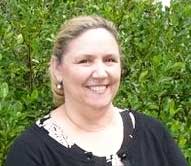
Individuals charged with lower level alcohol-related incidents may be discharged from their offenses through a new program.
The program will give these individuals the option to take courses and complete community service to get their charges dropped, said Tami Ritter, a Chico City Council member.
Members of the Chico State community want the program to extend to students, said Trisha Seastrom, the program manager for the Campus Alcohol and Drug Education Center.
The courses would give offenders the opportunity to learn about alcohol awareness, she said.
”Education is so much more important than just paying a fine,” Seastrom said.
A group of professional mediators and attorneys have already met to develop a restorative justice program in Butte County, Ritter said.
“We are starting with a juvenile, first offender program,” she said. “Eventually, as it becomes a successful model, we have no doubt other restorative programs will be implemented into all facets of our community.”
The notion of developing a diversion program is not new, Ritter said. Chico once had a juvenile first offender program at the Chico Police Department.
“These programs are a benefit to the community because they keep low level offenders out of the justice system, saving thousands of dollars, while simultaneously helping the offender take some responsibility for their actions,” she said.
The consequences for those charged would be closely linked with their crime, Ritter said. Alcohol-related offenders might clean streets, pick up litter, repair damage done by alcohol-fueled activities or hose sidewalks.
Only lower level offenders, like someone who was drunk in public, would be offered the diversion course, Seastrom said.
Based on the level of offense, the Chico Police Department or University Police would need to have a system in place by which an individual pleads guilty but does not get processed for a certain amount of time, Ritter said.
If they reoffend, they might not be eligible or have to face heightened penalties including paying steep fees for alcohol classes, she said.
To get the program at Chico State, the University Police and the Chico Police Department need to collaborate with the district attorney’s office, Butte College and nonprofits for community service, Seastrom said.
“There needs to be buy-in by the university and cooperation with CPD,” Ritter said. “It needs to be integrated into the student judicial code and practices. It cannot be independent of judicial affairs.”
Madison Holmes can be reached at [email protected] or @madisonholmes95 on Twitter.




